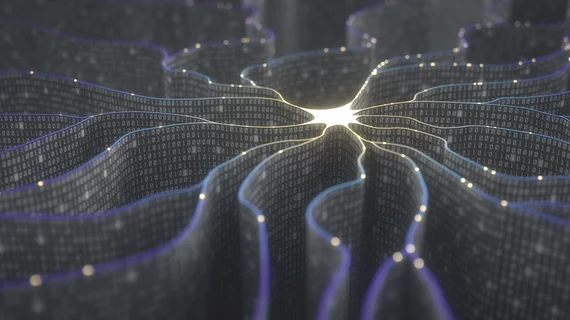Machine learning method helps radiologists diagnose uterine cancer
A machine learning algorithm based on perfusion weighted MRI accurately differentiated between benign and malignant tumors in the uterus, according to researchers at Tehran University of Medical Sciences (TUMS) in Iran.
There are no current criteria to differentiate uterine sarcomas—a rare disease with a poor prognosis—from other masses. And final diagnosis is often made only after surgery, wrote Mahrooz Malek, with the department of radiology at TUMS, and colleagues.
In the study, researchers tested a machine learning approach for distinguishing uterine sarcoma from leiomyomas on 42 women consisting of 60 total masses (10 sarcomas and 50 benign leiomyomas).
All participants underwent a traditional MRI followed by perfusion weighted magnetic resonance imaging (PWI). A radiologist outlined two regions of interest (ROI) on each tumor, and two additional ROIs were used for baseline comparison.
Taking 21 features extracted from the ROI of the entire tumor (ROIL), the area with the most marked contrast enhancement (ROIs) and the psoas muscle (ROIp), the machine learning method achieved an accuracy of nearly 92 percent, 100 percent sensitivity and 90 percent specificity. That beat the 67 percent overall accuracy using seven parameters taken from the ROI representing the entire tumor.
Malek et al. did note that none of the parameters from ROIL and ROIs showed significant differences between sarcoma and benign leiomyomas, but maintained, with more research, their method could help diagnose uterine cancers.
“These preliminary results suggested that the proposed method could be potentially utilized along with conventional MRI sequences to differentiate between sarcomas and leiomyomas,” the authors concluded. “As using this model will require computation of the PWI parameters, further studies on a larger sample size should be conducted to investigate cost-effectiveness of the method proposed in this study.”
The study was published online in the European Journal of Radiology.

